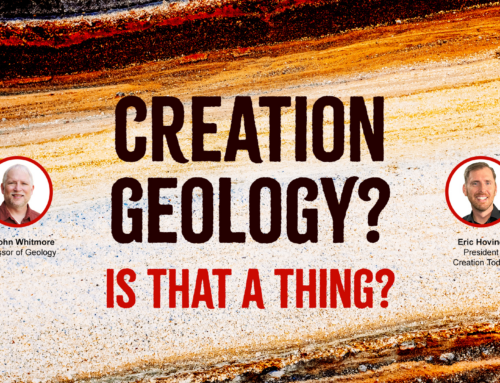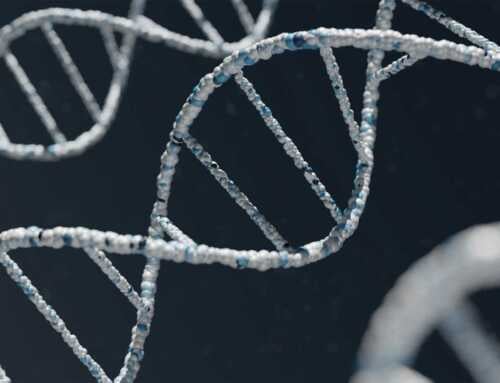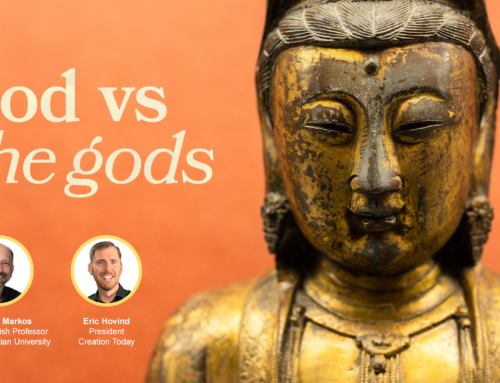As any other creation-science organization, Creation Today receives numerous emails every week asking our opinion about various articles that our supporters, and at times our opponents, find online. Many times it’s a sincere seeker who is genuinely interested in expanding their understanding in a particular area. Other times, it’s just a caustic scoffer who feels that if we don’t offer an immediate response, we are somehow wrong in our thinking, and he gains a momentary feeling of satisfaction.
Either way, our attention was brought to an article on the popular anti-intelligence website TalkOrigins. The author, Raymond Sutera (qualifications unknown), attempts to convince the reader that whales did indeed evolve from a land-dwelling animal in his article “The Origin of Whales and the Power of Independent Evidence” (August 10, 2001). What follows here is a cursory response to the types of evidences, and the arguments provided by the author. Sutera’s comments are indented, with my response following.
Point/Counterpoint
Sutera starts his article with the following challenge:
“How do you convince a creationist that a fossil is a transitional fossil? Give up? It is a trick question. You cannot do it. There is no convincing someone who has his mind made up already.”
Perhaps Sutera is a natural pessimist, I don’t know, but this statement is simply false. The mere fact that we have ex-Evolutionists on the Creationist side, and ex-Creationists on the Evolutionist side is a testimony against Sutera’s belief that the debate is all in vain.
Another thing the reader needs to keep in mind here is that Sutera’s mind is made up as well. He has long decided that dissent with modification is the only answer to how life and diversity arrived here on earth. He arbitrarily selected the naturalism worldview, based on a philosophical bias that prefers naturalism.
Open to interpretation
Sutera then goes on to describe what makes a whale a whale. He gives a short talk that is similar to something you would hear in creationist literature, discussing how nicely adapted the whale is to his environment, etc. Sutera then makes the following statement:
“A few species of whales still possess a vestigial pelvis …”
When you hear statements like this, you need to immediately realize what is taking place in the Evolutionist’s mind. What do they mean when they say “vestigial”? This word, “vestigial,” is an equivocal word, meaning it has various definitions that aren’t immediately clear when it’s used. It would be like me saying, “I just bought a bat!” I’ve not really told you much until I tell you if I’m speaking of a wooden object used in baseball, or a flying mammal. Likewise, when an evolutionist says, “Whales have a vestigial pelvis,” you need to ask, “What do you mean by ‘vestigial’?” They likely will give you one of two answers:
- Vestigial: No longer serving a purpose.
- Vestigial: No longer serving its original purpose.
Let’s look at these individually. The first definition would be very difficult to substantiate. Basically, it would require the person making the claim to prove a negative. Many parts of the human body have been labeled as useless or serving no function over the years. As our understanding of biology grows, this list of “useless vestiges” shrinks, until it becomes a vestige of human ignorance.
Additionally, making the claim “this has no purpose,” is dangerously close to arguing from incredulity, meaning “I don’t know the purpose, therefore it has no purpose.” Imagine a 6-year-old under the hood of a car, determining what is needed, and what is not. Or a father ending up with “extra pieces” after assembling the child’s swingset.
The second definition is pretty revealing. To suggest the organ/object is unlike its “original form,” would be to assume it had an “original form” different than itself. For instance, your feet are no longer used in the same manner your ape-like ancestors used theirs, therefore, your feet are “vestigial.” But this definition requires the person making the claim to already have a belief in evolution—which is begging the question of what they’re attempting to prove in the first place.
Evolutionists need to know their audience as well. Creationists believe, according to Scripture, that man disobeyed God, and therefore brought a curse upon all of creation—The Fall. Today we are in a state of downward decay and destruction; each successive generation of humans is worse-off than their predecessors. For this reason, it’s perfectly reasonable that animals would lose genetic information, resulting in altered physical appearance, among other things. This isn’t to say that whales once had legs; no evidence for that exists. But it is saying that evolutionists will have to provide a different type of argument if they wish to win over their dissidents. Creationists already have an explanation for why things are bad, falling apart and getting worse.
Facts or Bias?
At this point, we get to the alleged evidence for whale evolution:
“The paleontological evidence comes from studying the fossil sequence from terrestrial mammals through more and more whale-like forms until the appearance of modern whales.”
This type of argument is similar to the second definition of “vestigial,” in that it requires you to first assume evolution to be true. Looking at fossils doesn’t suggest that fossil A evolved into fossil B. It could very well be that Fossils A and B are similar animals, but not related via descent. Note how the former conclusion is based not on the evidence, but a philosophical factor that determines how you view the evidence. If you believe evolution to be true philosophically, then all animals are transitional with regards to their ancestors and their progeny. That position is not based on objective study, but rather personal taste for what is philosophically acceptable, and what is not. It stems from a belief system.
Sutera then goes on to discuss the evidence from the “Fossil Record.” Again, without even touching the specific fossils, this argument raises red flags. Throughout your experience with evolutionists, you will soon find that the fossils are a flip-flop base for them. If the fossil distribution is compatible with their philosophy, they will use it as affirmative evidence. If the fossil distribution is not compatible, they will blame the “imperfection” of the fossil record. “Scavengers may have moved this fossil; Geologic events may have reshuffled this area, etc.” Walter ReMine, in his book The Biotic Message, points out that “evolution fits the data like fog fits a landscape.”
“The examination of the morphological characteristics shared by the fossil whales and living ungulates makes their common ancestry even clearer.”
Demonstrating similarities only makes their similarities even clearer. Any idea of common ancestry is begging the question, since it has not been demonstrated that one type of animal, given enough time, will become a completely different type of animal.
Similarities exist in nearly all objects, all over. But it’s beyond the data to suggest the similarities mean something beyond what is observable, or repeatable. Similarities in humans can reasonably lead one to believe that the higher the degree of similarity, the greater chances two humans are related. This is because we can see humans producing humans. We have that directly observable evidence to substantiate the similarities-relationship claim. This doesn’t exist for evolutionists, therefore their arguments from similarities aren’t worth a hill of beans without a demonstration that one animal is indeed related to a different type of animal.
Sutera concludes his article with a typical evo-religious mantra:
“The only plausible scientific conclusion is that whales did evolve from terrestrial mammals.”
What determines what is “plausible”? Even though Sutera provides no evidence that one type of animal can, given enough time, turn in to a different type of animal, he still feels that this devotion is “the only plausible scientific conclusion,” resulting from his religious and philosophical devotion to naturalism, which dictates beforehand what he is permitted to believe and what he is not permitted to believe.
Evolutionists and creationists agree: animals are often times very similar to other animals. Fossils exist. The fossil record isn’t entirely trustworthy. Whales may have changed throughout time, but to what degree? We all agree on what can be observed. So why do we disagree so strongly with each other?
The difference between a creationist and an evolutionist is a matter of faith, not facts. Evolutionists have decided to abandon God’s record of Creation, and sometimes attempt to abandon God himself, in favor of their own religious devotions. Creationists fully embrace God’s Word as the ultimate record of history, knowing that it’s our best hope of truly knowing what took place in the past.
Where do you stand, upon the infallible Word of God, or the fallible and ever-changing word of man?






